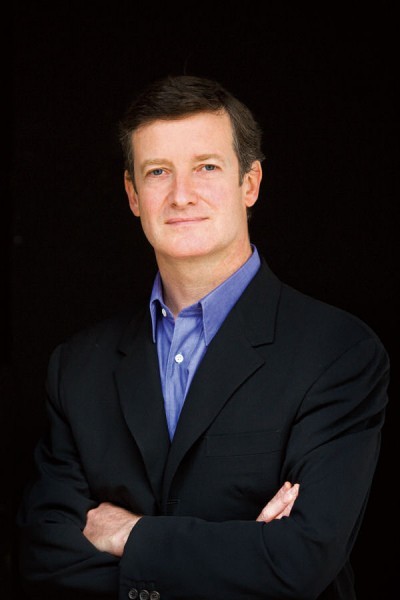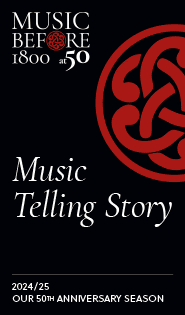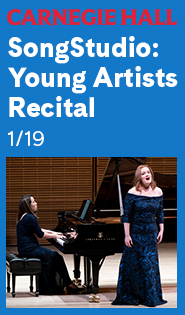Bicket, English Concert achieve a transcendent grace with “Theodora”
Saying so much with so little is a cliché, but a useful one for setting Handel apart from his immortal contemporary, Bach. Where Bach’s musical imagination is extravagant, Handel’s seems modest.
Handel’s musical vocabulary is deceptively simple. But with it he skillfully spins out long lines and large scale structures that are wise and powerful. As Beethoven said: “Go to [Handel] to learn how to achieve great effects, by such simple means.”
One of his most affecting works is his late, tragic oratorio, Theodora, which was beautifully played Sunday afternoon at Carnegie Hall by the English Concert, led by Harry Bicket at the harpsichord, joined by the Choir of Trinity Wall Street (well-prepared by their director Julian Wachner). The soloists —soprano Dorothea Röschmann as the title character, Sara Connolly in the mezzo role of Irene, countertenor David Daniels as Didymus, tenor Kurt Streit as his friend Septimmius and Neal Davies, bass-baritone, as Valens—were uniformly outstanding, more musically and emotionally expressive than any comparable cast on record.
The three-act work is narratively and dramatically concise, the story of the Christian martyr Theodora, who refuses to worship Venus and Flora and so is condemned by Valens, governor of Antioch, to serve as a prostitute in the temple of Venus. The violation of her chastity and her faith is a fate worse then death, but the Roman soldier Didymus, who loves her and is a crypto-Christian, helps her escape. He is captured and sentenced to death. Theodora offers to accept the punishment to save him, and in the end Valens has them both executed. Tragic indeed, and the piece ends with a lament, an unfashionable structural idea in Handel’s London milieu.
This fine performance displayed the music as a highpoint of Handel’s career. He surpasses the challenge of expressing vast differences in character and subtle changes in mood with nothing more than triadiac harmony, dynamics and fundamental musical forms.
The music is pared down to essentials. The recitatives are minimal and elide directly into arias and duos. Handel uses the da capo form but alters it freely by by dropping formal sections or placing expressive weight, through duration, on small bits of Thomas Morrell’s excellent libretto.
Handel also makes a simple and dramatically significant decision, to make the music for the Roman characters and chorus florid and rhythmically lively, while that for Theodora, Irene and Didymus (in Act III), is stately, dignified, and built on counterpoint so masterful that it sounds easy. The Romans dazzle the ears, while the Christians touch the mind and heart.
In the Christian music, there is a further, subliminal element, a complex one. The characters sing of Christian works, appropriate to 18th-century England, while the melodies they sing are exceptionally simple and graceful, the idea of “grace” being inherent in musical expression. Theodora ends with the Romans lost in deep admiration of the strength of Theordora’s faith (it is they who lament her death), and the music in the abstract reconciles the schisms of Reformation and Counter-Reformation.
All the characters are human, mostly three-dimensional (Valens is more a driver of the plot than a figure of interest), and the singers made them vivid. Connolly and Streit were riveting. The latter’s Act I aria, “Descend, kind pity,” brought a noticeable hush over the house and set the stage for several brief, warm ovations for the singer. The former sang pianissimo with amazing projection and intensity.
An essential part of the beauty and expression in the concert was the range of dynamics that Bicket outlined, broader than is usual in baroque playing. The English Concert is one of the foremost ensembles for “historically informed performance” and their grainy, throaty sound is perfect for baroque singing, grounding ornamentation and the stylization of emotion with timbres that are intimate extensions of the physicality of music: breath, motion.
Daniels has been singing this role for over a decade, and his voice sounds as youthful and sweet as ever. His middle and lower range, though, did tend to disappear into the orchestral textures. Davies was full of verve and character beyond simplistic scenery chewing.
Röschmann’s soprano is rich, quasi-mezzo in color, closer to the sound of Lorraine Hunt Lieberson’s characterization than Dawn Upshaw’s, and she combined the virtues of both those singers. She had emotional and aesthetic gravity, an inherent sense of faith and determination, and she sang with clear, elegant phrasing.
Handel’s melodies are long and move in surprising directions, an upward turn here where one expects downward motion, a modulation there where another composer would bring the line to a cadence. Theodora may be built with simple means, but the mind behind it was sophisticated, and the result is profound music.
Roger Norrington leads the Orchestra of St. Luke’s in Beethoven’s “Miss Solemnis on March 6, 8 p.m.carnegiehall.org


